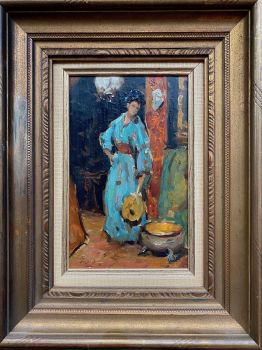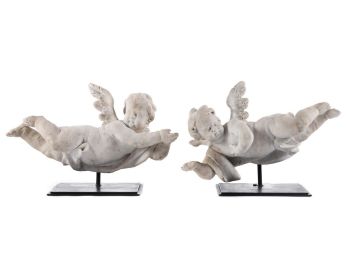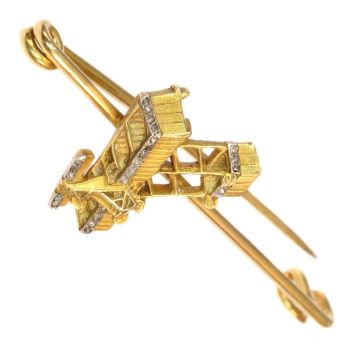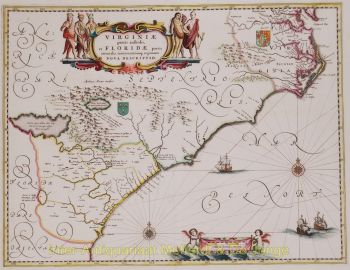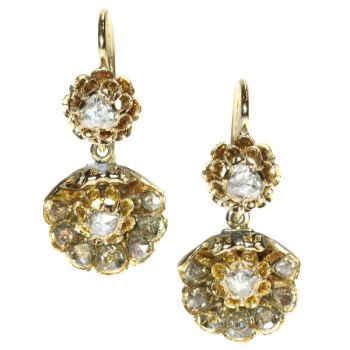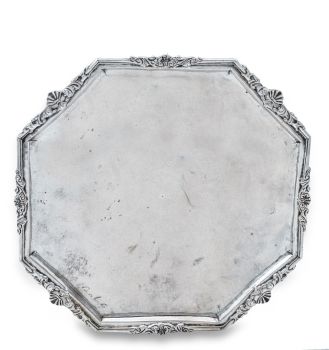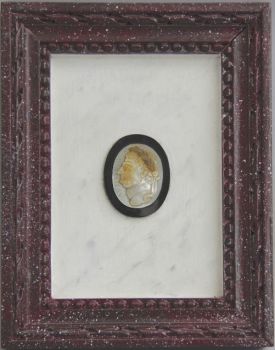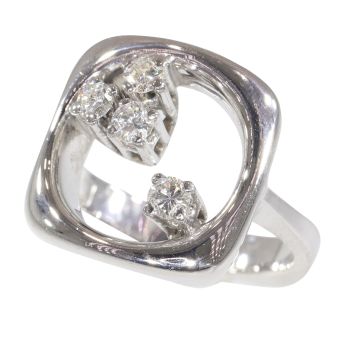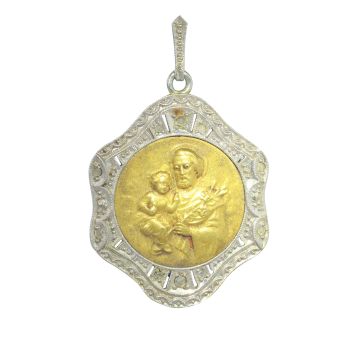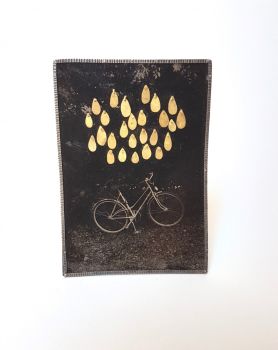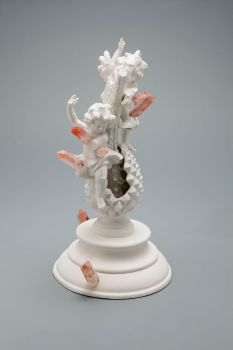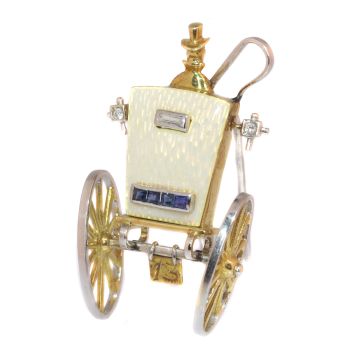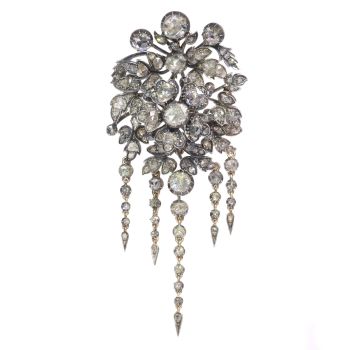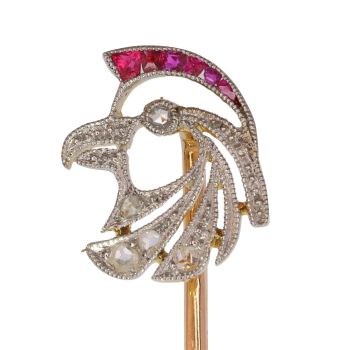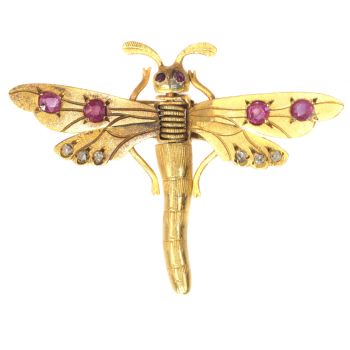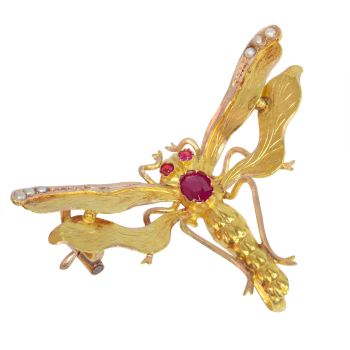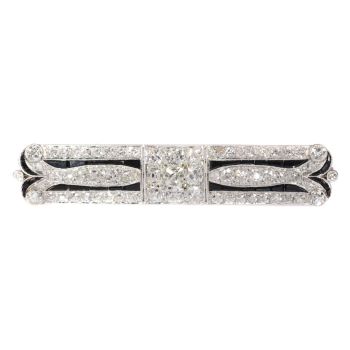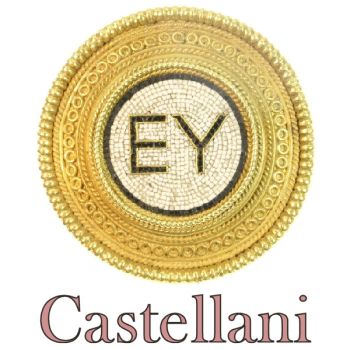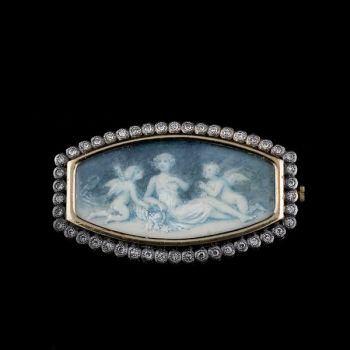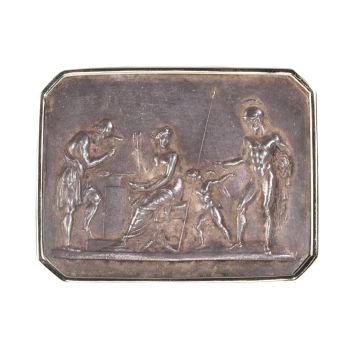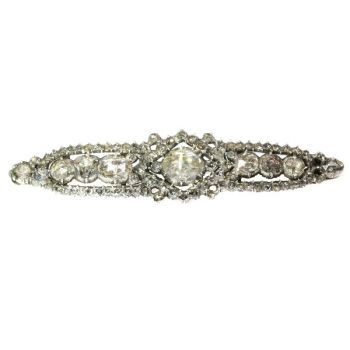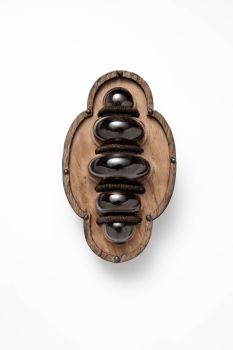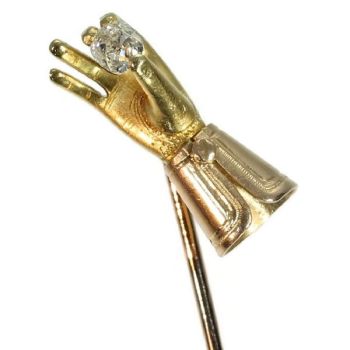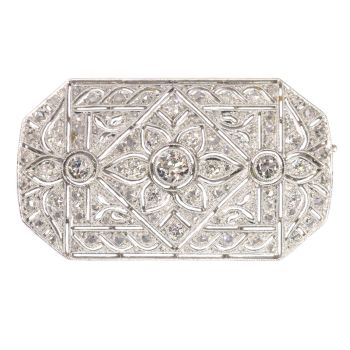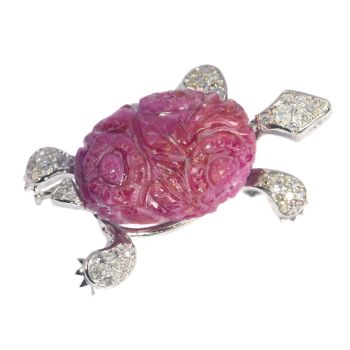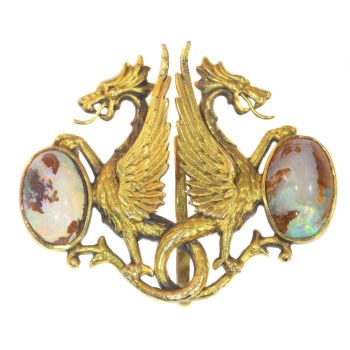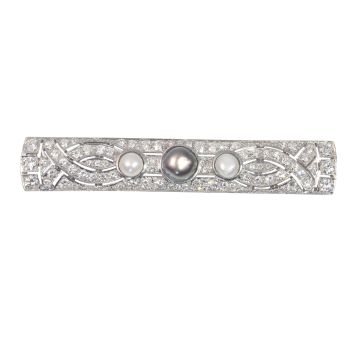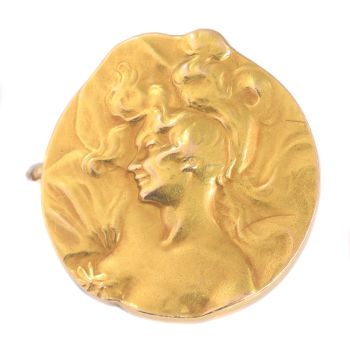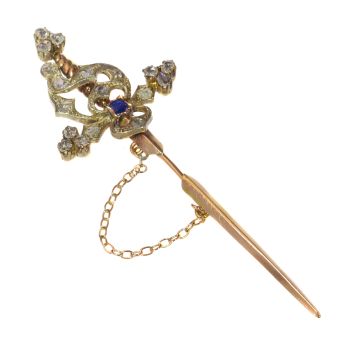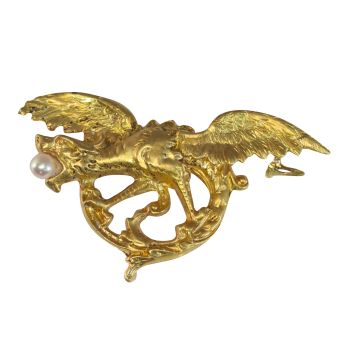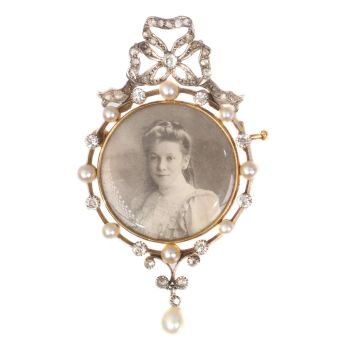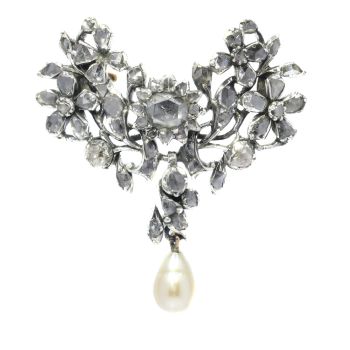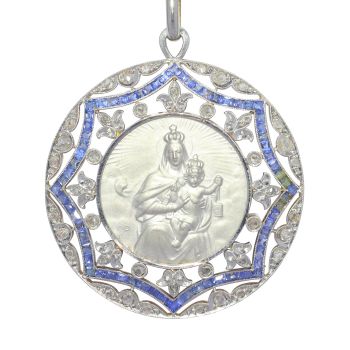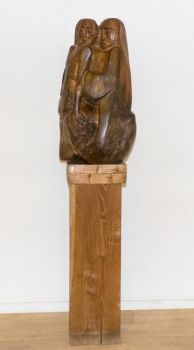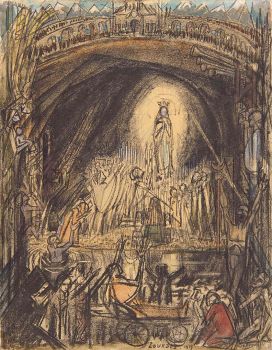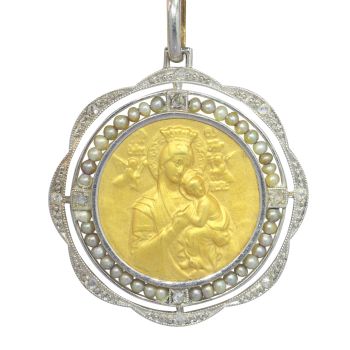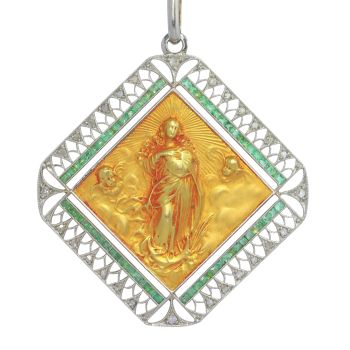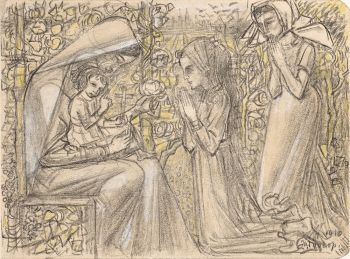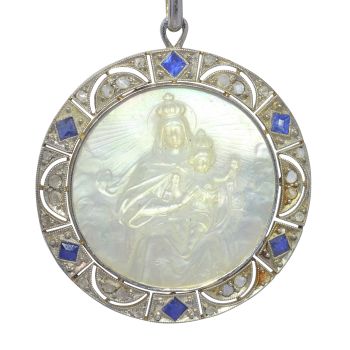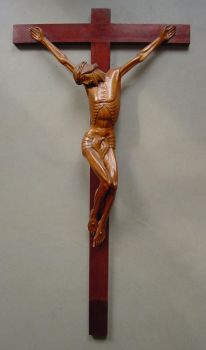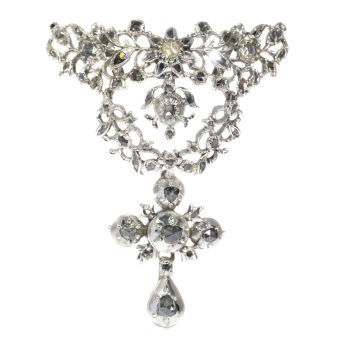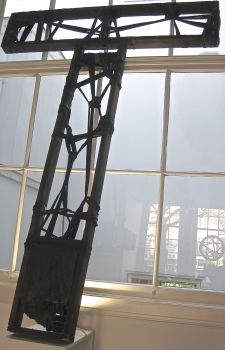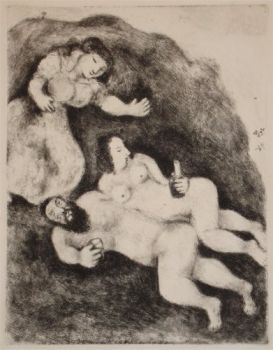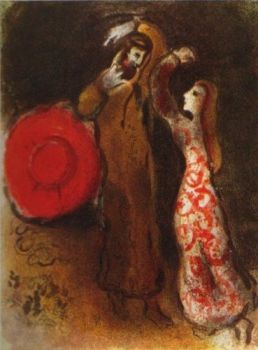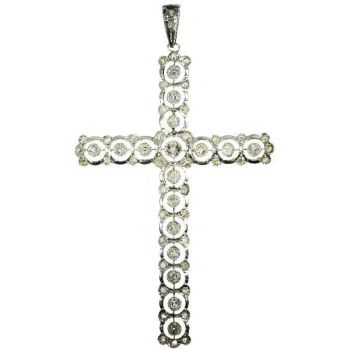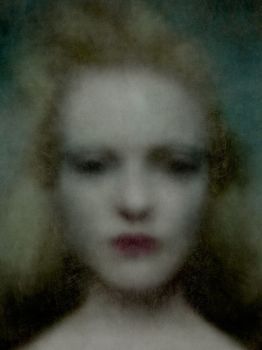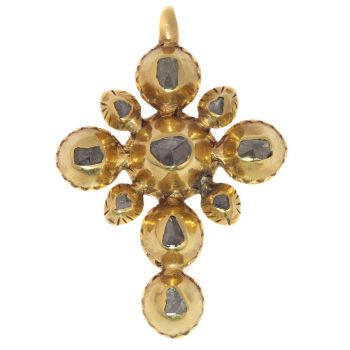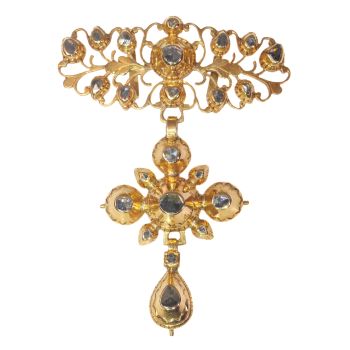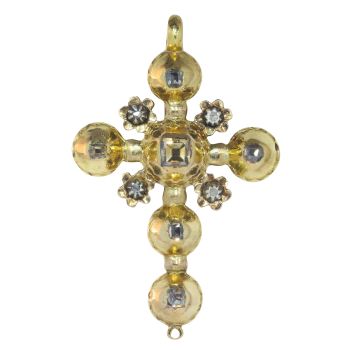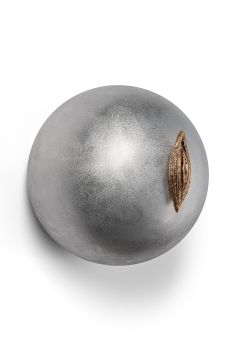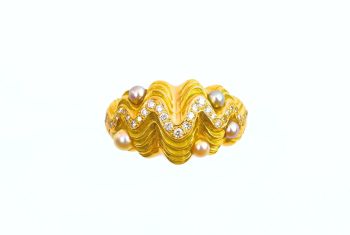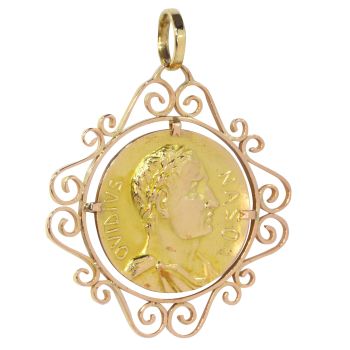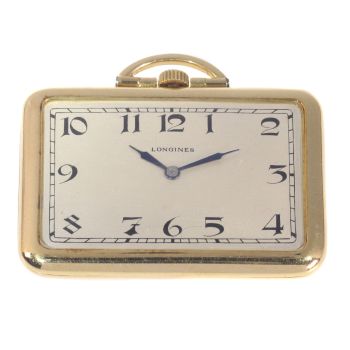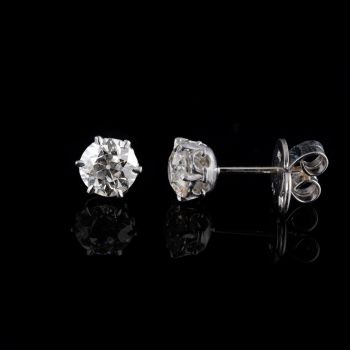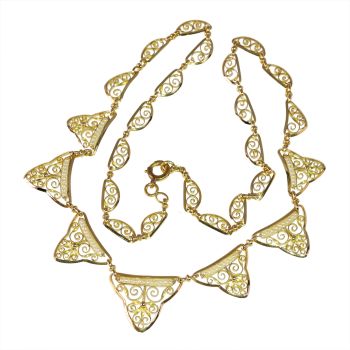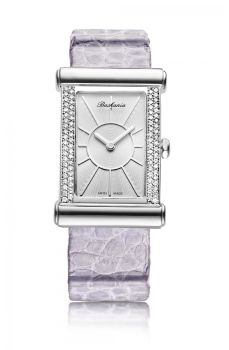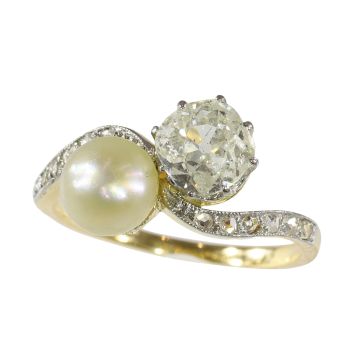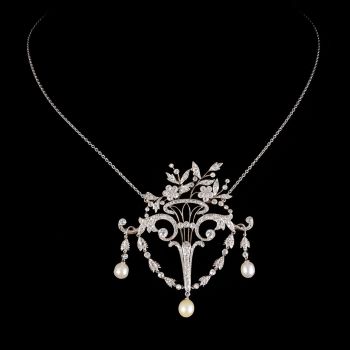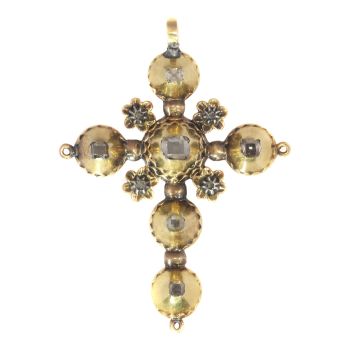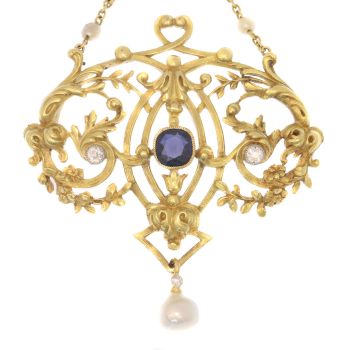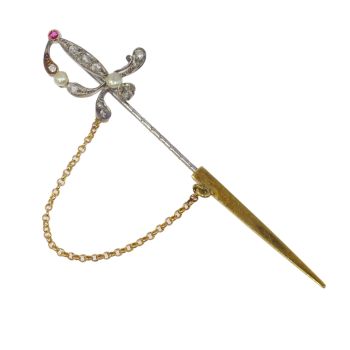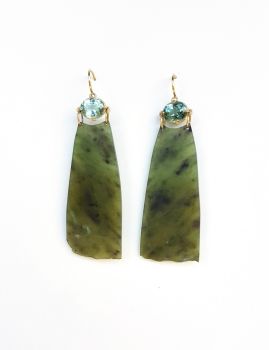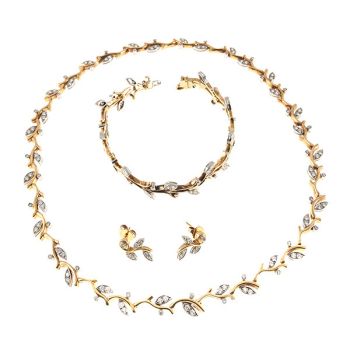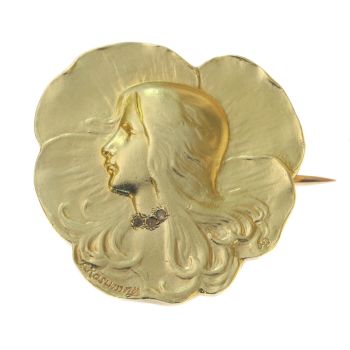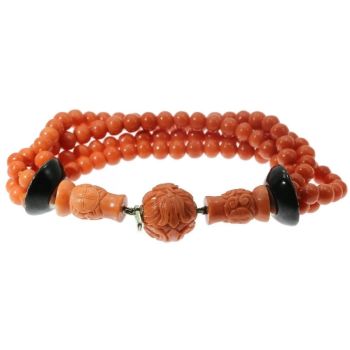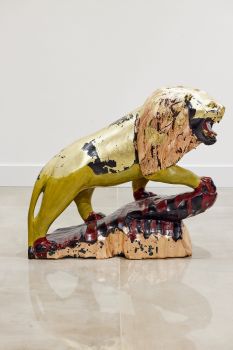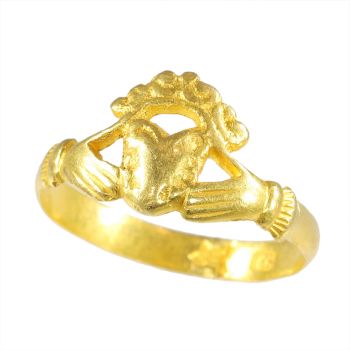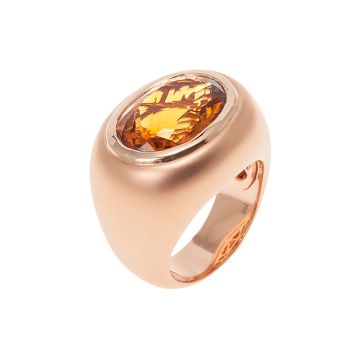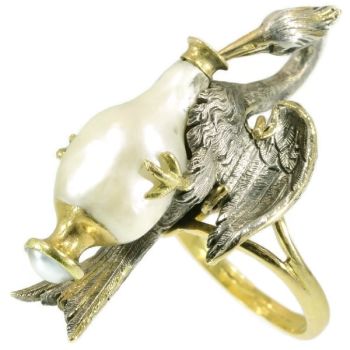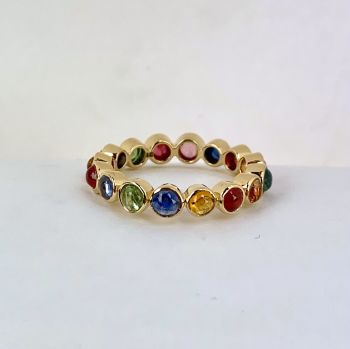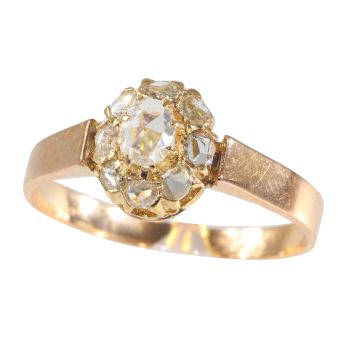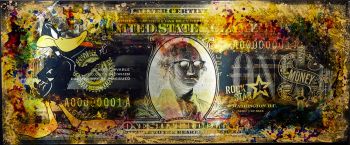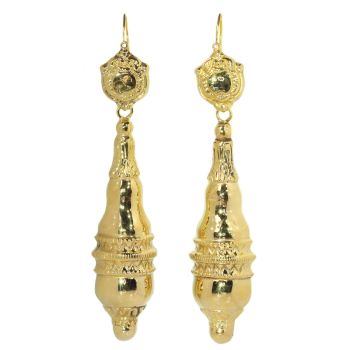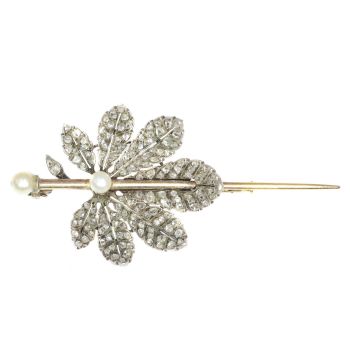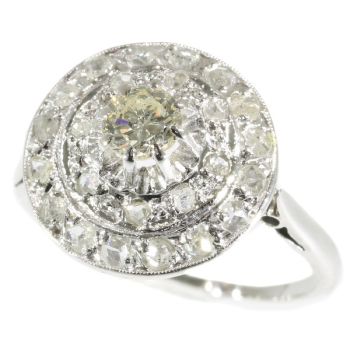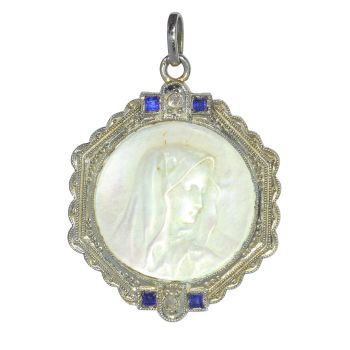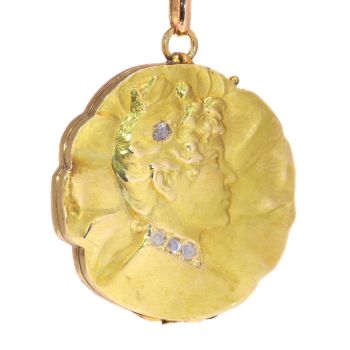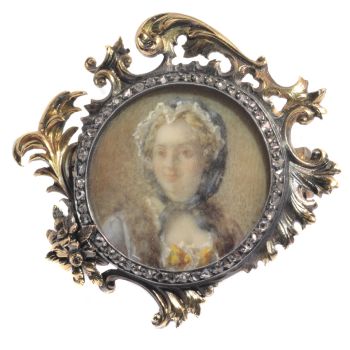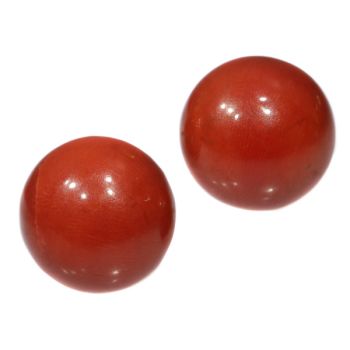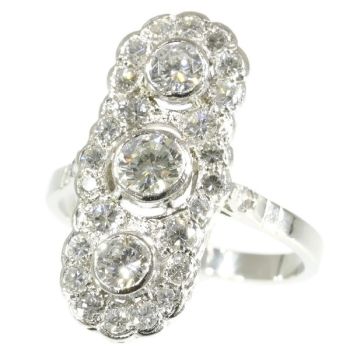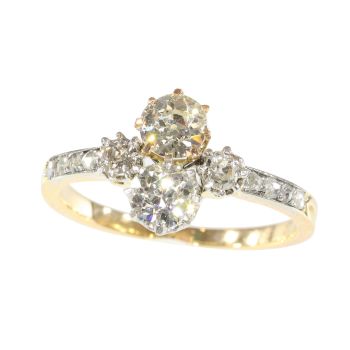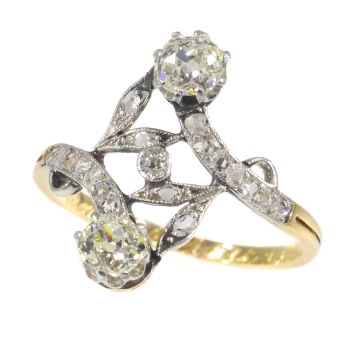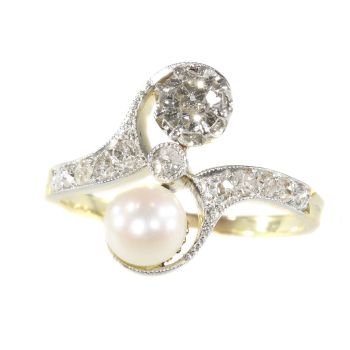A Serene Masterpiece: Vintage 1950s Enameled Virgin Mary Brooch 1950
Artista Desconocido
Adin Fine Antique Jewellery
- Sobre la obra de arte
This exquisite 1950s enameled brooch, crafted in 18K yellow and white gold, features a serene depiction of the Virgin Mary. The delicate enamel work, of unusually high quality, captures her gentle expression, framed by a golden nimbus and veil, evokinga timeless reverence. Encircled by floral motifs adorned with ten cabochon turquoises, this piece seamlessly blends vintage charm with artistry. Reflecting the influence of religious Renaissance iconography, it embodies devotion and craftsmanship, making it a treasured connection to mid-century Christian artistry and its enduring legacy.
Antique jewelry object group
brooch
Condition
very good condition
more info on our condition scale
Country of origin
unknown
Style
Vintage 1950s
more info on styles
Period
ca. 1950
Events & facts of this era, poetry of this era, fashion of this era.
Source of inspiration
Christianity
Theme
Virgin Mary - That Mary was the virgin mother of the divine Christ is made plain in the Bible and from the beginning Christians have believed she remained virgin throughout her life, as church fathers, and councils testify. In the Roman Catholic Churchit is an article of faith that God preserved Mary from the taint of 'original sin' from the first moment of her conception in her mother's womb (her 'Immaculate Conception'). Also that, without denying her natural death, at the end of her earthly lifeshe was taken body and soul into Heaven (her Assumption).
Material 18K
yellow and white gold or platinum (touchstone tested)
more info on precious metals
Technique
Enamelling is an old and widely-adopted technology. The ancient Egyptians applied enamels to pottery and stone objects. The ancient Greeks, Celts, Russians, and Chinese also used enameling processes on metal objects. Enamel is the colorful result offusing powdered glass to a substrate by firing, usually between 750 and 850 degrees Celsius. The powder melts and flows and hardens to a smooth, durable vitreous coating on metal, glass or ceramic. According to some sources, the word enamel comes fromthe High German word smelzan (to smelt) via the Old French esmail. Used as a noun, "an enamel" is a usually small decorative object, coated with enamel coating, such as a champlevé or a cloisonné (different techniques).
Precious stones
Ten cabochon turquoises
Birthstones
Turquoise is the birthstone (or month stone) for December.
more info on birthstones
Hallmarks
No trace.
more info on hallmarks
Dimensions
4,24 cm (1,67 inch) x 3,23 cm (1,27 inch)
see picture with a ruler in millimeters and inches
Weight
10,00 gram (6,43 dwt)
Adin Reference Nº
24323-0268
Copyright photography
Adin, fine antique jewellery
Additional information
our latest acquisitions
jewelry glossary
wall of fame
visit us in Antwerp
subscribe to our mailinglist
- Sobre el artista
Puede suceder que un artista o creador sea desconocido.
Algunas obras no deben determinarse por quién está hecho o por (un grupo de) artesanos. Algunos ejemplos son estatuas de la Antigüedad, muebles, espejos o firmas que no son claras o legibles, pero también algunas obras no están firmadas en absoluto.
También puedes encontrar la siguiente descripción:
•"Atribuido a …." En su opinión, probablemente una obra del artista, al menos en parte.
•“Estudio de….” o “Taller de” En su opinión, una obra ejecutada en el estudio o taller del artista, posiblemente bajo su supervisión
•“Círculo de…” En su opinión, una obra del período del artista que muestra su influencia, estrechamente asociado con el artista pero no necesariamente su alumno.
•"Estilo de …." o “Seguidor de…”. En su opinión, una obra ejecutada al estilo del artista pero no necesariamente por un alumno; puede ser contemporáneo o casi contemporáneo
•"Manera de …." En su opinión una obra al estilo del artista pero de fecha posterior
•"Después …." En su opinión, una copia (de cualquier fecha) de una obra del artista
•“Firmado…”, “Fechado…” o “Inscrito” En su opinión, la obra ha sido firmada/fechada/inscrita por el artista. La adición de un signo de interrogación indica un elemento de duda.
•“Con firma…”, “Con fecha…”, “Con inscripción…” o “Lleva firma/fecha/inscripción” en su opinión la firma/fecha/inscripción ha sido añadida por alguien que no es el artista
¿Está interesado en comprar esta obra de arte?
Related artworks
Artista Desconhecido
A pair of angels Antwerp, 17th century, Carrara marble17th century
Preço em pedidoFrederik Muller
1 - 4 / 12- 1 - 4 / 24
Artista Desconhecido
A pair of angels Antwerp, 17th century, Carrara marble17th century
Preço em pedidoFrederik Muller
1 - 4 / 24Ans Hemke-Kuilboer
Brincos de diamante solitair2000 - 2017
Preço em pedidoAns Hemke-Kuilboer Juwelier & Antiquair
Fontana
Broche de cesta de flores com pingente1900 - 1905
Preço em pedidoAns Hemke-Kuilboer Juwelier & Antiquair
1 - 4 / 24- 1 - 4 / 12








